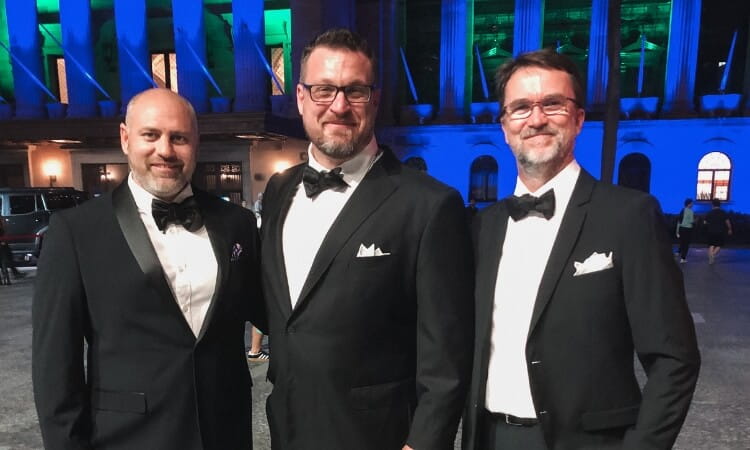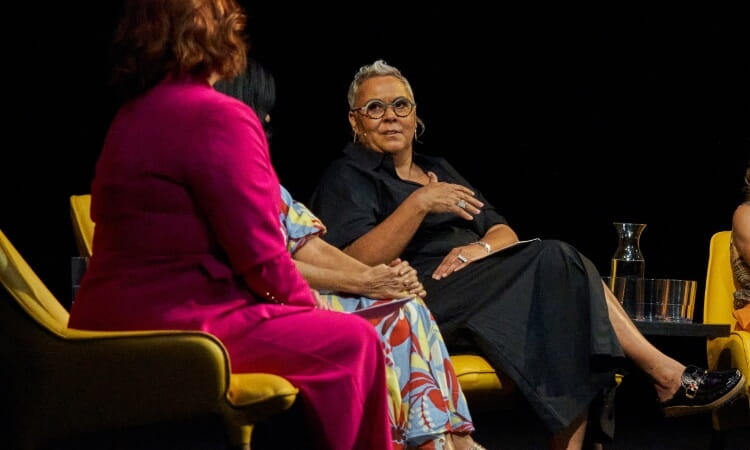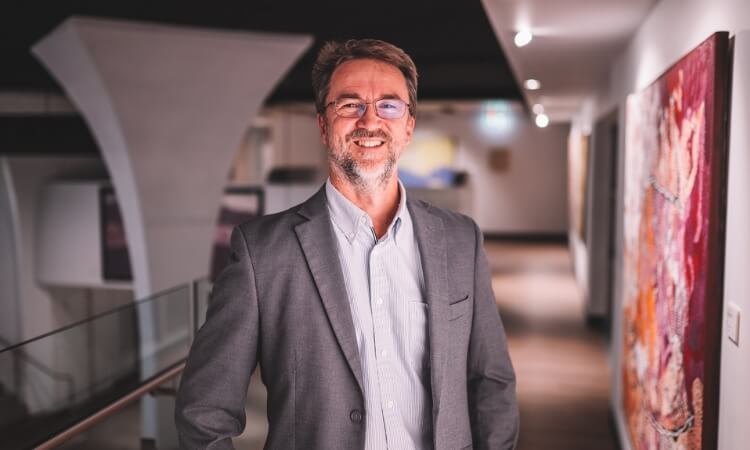Meet Jeremy: Inspiring dream for First Nations law student

University of Southern Queensland (UniSQ) Juris Doctor student Jeremy Rigney was recently named a finalist in the 2024 Queensland Law Society Awards.
After completing a Bachelor of Nursing and 12 years of emergency nursing, his journey into a career in law didn’t follow a typical path.
We caught up with Jeremy to learn more about his recent recognition and to ask about his unconventional journey to studying law and the poignant message behind it.
Can you tell us about your journey to study law?
I never thought law would be a role I would take on, as my childhood, family and peers were often on the wrong side of the law. Growing up in a low socioeconomic area, I wasn’t even sure if I would be capable of completing school, let alone university.
No one in my immediate family had finished school. I worked basic jobs to get by after school until I studied certificates in administration and government, then three years later, I studied a Bachelor of Nursing. There had been many times in my nursing career where bias, favouritism, and judgment did not go in my favour, and this certainly hindered my professional development. Institutionalised racism had a huge impact on my progress.
I decided to work through some post-graduate studies, specialising in advanced clinical and emergency nursing, trauma, and paediatric resuscitation. Despite this, I struggled to progress my career. I worked as an emergency nurse for 12 years, until now, where I work supporting the health care of children in the out-of-home care system and youth justice. I considered completing a Masters in Nursing and thought my skills would be very well suited to supporting those in the legal system.
The inequalities I experienced led me to ask this question: If I have the ability to work in these professional roles – despite the many barriers associated with who I am, culturally, physically and as an educated Aboriginal man – who else is going through this and why? What if they don’t have a voice or the confidence to manage this? This has driven me to support those in need more, therapeutically, in the legal system.
What are your law career aspirations?
My partner works as a behaviour support practitioner, and together, we have a sound understanding of trauma and its effects on the lifespan. My future work will be to support people. Ideally, I’d like to be in my own practice that supports multiple facets of the social determinants of health and how this can be managed to support individuals and families. I am yet to decide which area of law I am drawn to, and each semester I gain a new interest with the work I am completing.
What does it mean to be named as a finalist in the Queensland Law Society Awards in the First Nations category?
For me, this achievement is for all the children, parents and families who didn’t think being successful was possible. I am still faced with many challenges, but if we all put our minds to it, despite our history, we can achieve great success. My family back home, the Ngarrindjeri Nation, and my Caucasian family are all very proud of this achievement, and this drives me to continue working hard.
What advice do you have for First Nations students thinking about pursuing a career in law?
Go for it! I have failed many times throughout my life, and I have had some great successes. Without having a go, we tread water and that gets us nowhere. If you identify as an Aboriginal or Torres Strait Islander and you feel empty, lonely or without support, there is a large network of black fellas that are academics to help you, including me.
How has UniSQ helped you achieve your study goals?
A huge credit to my tutor and friend, Michael Stockwell. His support has been immeasurable and that is a credit to the ITAS system at UniSQ. Without Michael’s guidance, I would not be achieving the same results.


